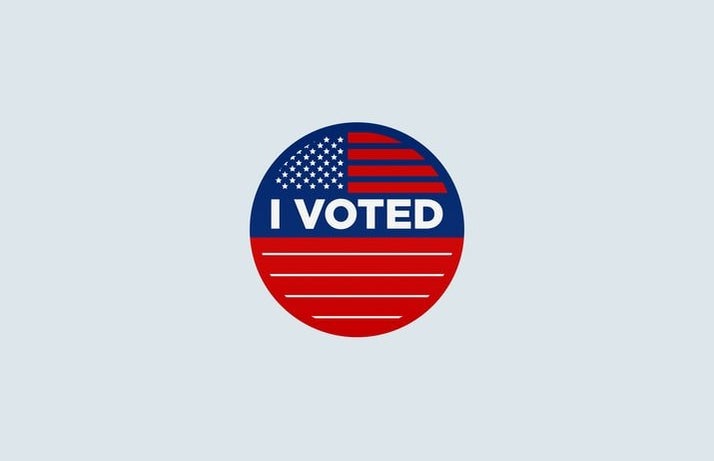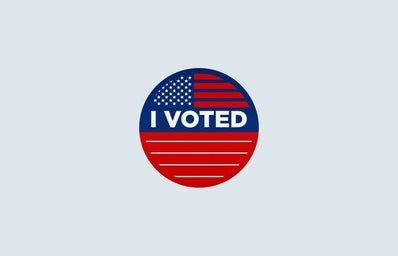Despite President Joe Biden’s optimistic campaign promise of bipartisanship, the issues that Republicans and Democrats face today have created seemingly unbridgeable rifts. A notable example is voting restriction, which has come to my attention in light of Texas’s newest bill regarding voting restrictions.
The aftermath of the 2020 general election has been shocking yet, in many ways, unsurprising. The insurrection, the claims of fraudulent voters and the even greater divide between Republicans and Democrats are only a few instances in which this country has shifted in trust of democracy and in values. A keen illustration of this division is Senate Bill 7 (S.B. 7), the voting restriction bill that passed through the Texas Senate and moved to the House of Representatives on May 30, 2021.
According to The Texas Tribune, features of S.B. 7 are limits to early voting hours, tightened voting-by-mail opportunities, and the addition of new identification requirements for mail-in ballots. The bill will ban 24-hour voting and drive-in voting, both of which were hugely important for turnout in Harris County—which is where Houston is located—during the 2020 election. During the 2020 election, Houston and Dallas were both Biden victories, according to The Houston Chronicle. This is not entirely surprising, as typically large cities vote blue, but it was historic for Texas, in which voter turnout was 66% for the general election.
Interference with early voting hours directly works against the “Souls to the Polls” movement, which historically has increased Black voter turnout. The movement encourages early voters following morning church service, but S.B. 7 would shift the eligible voting window to 1 to 9 p.m. Democrats fear this could hinder people of color’s voting turnout.
The bill is intended to restrict opportunities to vote by mail. According to The New York Times, Texas is one of the most difficult states to vote in, and this bill is proof of conservative attempts to constrain the democratic action of voting. S.B. 7 would create new provisions for absentee ballots, making them less accessible. For example, those with a disability would still have the opportunity to vote absentee, but those who do not have conditions physically preventing them from going in person to vote would not be offered the same luxury. Voting surveillance will increase, and mail-in ballots will now require a driver’s license number or the last four digits of one’s Social Security number, according to The Texas Tribune.
President Biden has been outspoken about his view of the bill. He has called Senate Bill 7 and its implications “wrong and un-American.”
Texas is not the only state with bills like S.B. 7 floating around. CNN cites that 22 new laws regarding voting restriction have already circulated among 14 states. States such as Wyoming, Georgia and Florida have already had legislation passed, and in many more states bills are being attempted to pass through both chambers.
However, despite many attempts to limit voting turnout by states, there are equal measures trying to counter that fact:one of which is the For the People Act. This bill works opposite of S.B. 7, as it aims to promote mail-in ballot opportunity and combat voter suppression, and President Biden has expressed support for it. In March, the bill passed through the House of Representatives, and it is expected to be taken up by the Senate as early as June according to The Hill.
The reality is, legislation like S.B. 7 is debated on a federal and local level each year. So what is the big deal?
As a first-time voter in the 2020 presidential election, it was a strange time to fill out my first ballot. I valued what the vote meant to me. Though it seems like a number that is lost in the millions that are cast, the vote carries greater significance. A vote is a declaration, and it might be quiet in sound, but it is mighty in effect. A vote is stating, “I believe this” and “I stand for this.” A vote is the choice to be loud and opinionated, rather than shy and submissive.
I was excited to cast my first ballot, granted it was an absentee one, so I did not experience the thrill of being in community with other voters (I didn’t even get a cheesy “I voted” sticker!). However, what I did not imagine to experience when I sealed the envelope and boastfully walked down the street to put it in the blue mailbox was fear. I felt fear for the power a single ballot could hold. For the most part, I felt satisfied; here I was, making my little contribution to democracy. The fear that took hold of me was only momentary, and the joy of the inauguration on January 20 was enough to make me forget it. I couldn’t help but wonder if these were the thoughts of all first time voters. Was it always a mix of excitement and fear, or was the fear a symptom of the United State’s current division?
Senate Bill 7, and all others like it, raises the coveted question of what we, as Americans and as human beings, are willing to sacrifice in order to promote democracy. Is the democracy we seek one regulated and controlled by restrictions and the certain opinions of others? The democracy we ought to seek is one rooted in choice and opportunity. At the heart of voting restriction laws is the fear that if we limit the options further, people will stop speaking out and showing up. And if we stop showing up, change is nothing more than a lost myth.
To halt the vote on Senate Bill 7, Texas Democrats acted accordingly, staging a walkout before the midnight deadline on May 30, says The New York Times. Though Governor Greg Abbott plans to hold a special session for the bill, the walkout indicated the disdain of the Democrats, and the measures they are willing to take to fight for the vote. This is a willing step we all should consider taking, no matter how small of a step it is.


